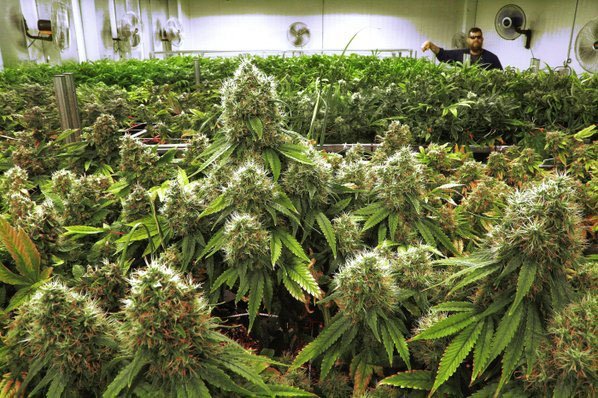The Arkansas Senate Revenue and Taxation Committee on Wednesday advanced a bill that would extend the sunset date for two years until July 1, 2025, for the 2017 state law mandating all sellers of medical marijuana collect and remit the special 4% privilege tax on sales.
The Senate committee recommended Senate approval of Senate Bill 419 by Sen. Jonathan Dismang, R-Searcy.
Extending the sunset clause for the Medical Marijuana Special Privilege Act will allow for continued collection of the privilege tax, the state Department of Finance and Administration said in its impact statement on SB419.
The department said medical marijuana special privilege tax collections totaled $16 million in fiscal 2022 that ended June 30, 2022.
The state has collected more than $94 million in tax revenue since the medical marijuana industry launched in mid-2019 with $47,473,853 from the 6.5% state sales tax and $47,252,048 from the 4.0% privilege tax, finance department spokesman Scott Hardin said afterward.
Revenue from the 4.0% privilege tax has been directed to UAMS for the effort to obtain a National Cancer Institute designation, and UAMS has received a portion of the revenue from the 6.5% state sales tax on medical marijuana, Hardin said. A total of $62.44 million has been provided to UAMS for the National Cancer Institute effort, he said.
Arkansans voted to legalize medical marijuana in November of 2016, but it took more than two years for the program to get off the ground.
Among other things, the Senate tax committee also endorsed:
Senate Bill 314 by Sen. David Wallace, R-Leachville, that would change the state law providing for an income tax credit for steel manufacturers that purchase certain waste reduction, reuse and recycling equipment.
The credit is available to qualified steel specialty products manufacturing facilities that started construction on or after July 1, 2017, with a closing date of July 1, 2023, under state law, the finance department said.
SB314 changes the definition of a "qualified steel specialty products manufacturing facility" to allow a facility with a closing date before Oct. 1, 2023, to qualify for the credit, according to the finance department. The department said the bill is "revenue neutral."
Senate Bill 434 by Dismang that would require an employer having 125 or more employees to file its annual statement of withholding electronically, effective in tax years beginning on or after Jan. 1, 2024.
Under existing state law, an employer having 25o or more employees are currently required to file its annual statement of withholding electronically.
The bill allows the finance department to waive the electronic filing requirement upon a showing of undue hardship by the employer.
House Bill 1523 by Rep. Kendra Moore, R-Lincoln, that would expand the sales tax exemption for sales at concession stands operated by a nonprofit youth athletic organization to also exempt sales at concession stands operated by other types of nonprofit youth organizations.
A non-athletic youth organization, such as a band booster club, would not be required to collect and remit sales tax on sales at concession stands, the finance department said.
The bill amends the sales tax exemption for "youth athletic organizations" under state law to remove the word "athletic" to expand the exemption to all nonprofit youth organizations, according to the finance department. The finance department projects the loss of about $35,500 in sales and use taxes in fiscal 2024 as a result of the bill.

